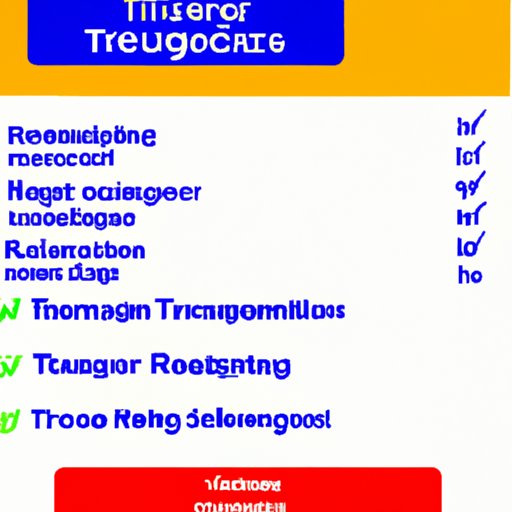Introduction
Reactivity is defined as an immediate and extreme response to a situation or stimulus. It can manifest in many forms, such as snapping at somebody, becoming defensive, or getting overly emotional. Though it can be difficult to avoid being reactive, it’s important to develop strategies for dealing with these situations in order to better manage our emotions and reactions. In this article, we will explore different methods for how to be less reactive.
Identify Your Triggers
The first step to managing reactivity is to recognize what triggers it. Take some time to reflect on what causes you to become reactive. It could be certain people, words, or situations that cause a negative reaction. According to Dr. Carla Marie Manly, a clinical psychologist, “When we become aware of our triggers—those things that set us off—we gain insight into how our past experiences, traumas, and beliefs shape our current reactions.” Being aware of what triggers your reactivity is essential in developing strategies to cope with it.
Practice Self-Awareness
Once you have identified your triggers, the next step is to practice self-awareness. This means being aware of your emotions and reactions in any given moment. When you feel yourself becoming reactive, it’s important to take a few moments to pause and check in with yourself. Ask yourself questions like “What am I feeling right now?” or “Why am I feeling this way?” This will help you gain perspective on the situation and assess how best to respond.
Learn to Listen
It’s also important to practice active listening when communicating. This means listening without jumping to conclusions or getting defensive. Instead, focus on staying calm and collected while listening to what the other person has to say. According to psychotherapist and author, Tamara Grand, “Listening is a powerful tool for calming yourself and the other person. Listening with an open heart and mind helps to reduce reactivity.”
Take Time Outs
Taking a time out is another effective strategy for managing reactivity. When you find yourself in a situation that is causing you to become reactive, it may be beneficial to step away from the situation. This will allow you to clear your head and regain perspective. Taking a break can give you the space to process your feelings and come up with a productive solution.
Employ Stress Reduction Techniques
Finally, it’s important to incorporate stress reduction techniques into your daily routine. This could include activities such as practicing yoga, meditation, or deep breathing. These activities can help to keep you calm and prevent reactivity. According to psychiatrist, Dr. Joseph Shrand, “Stress is a major contributor to reactivity, so managing stress levels is key to reducing reactivity.”
Conclusion
In conclusion, understanding and managing reactivity can be a difficult task. However, by identifying your triggers, practicing self-awareness, listening without jumping to conclusions, taking time outs, and employing stress reduction techniques, you can learn how to be less reactive and better handle difficult situations. Remember to be patient with yourself and take each situation one step at a time.
(Note: Is this article not meeting your expectations? Do you have knowledge or insights to share? Unlock new opportunities and expand your reach by joining our authors team. Click Registration to join us and share your expertise with our readers.)
